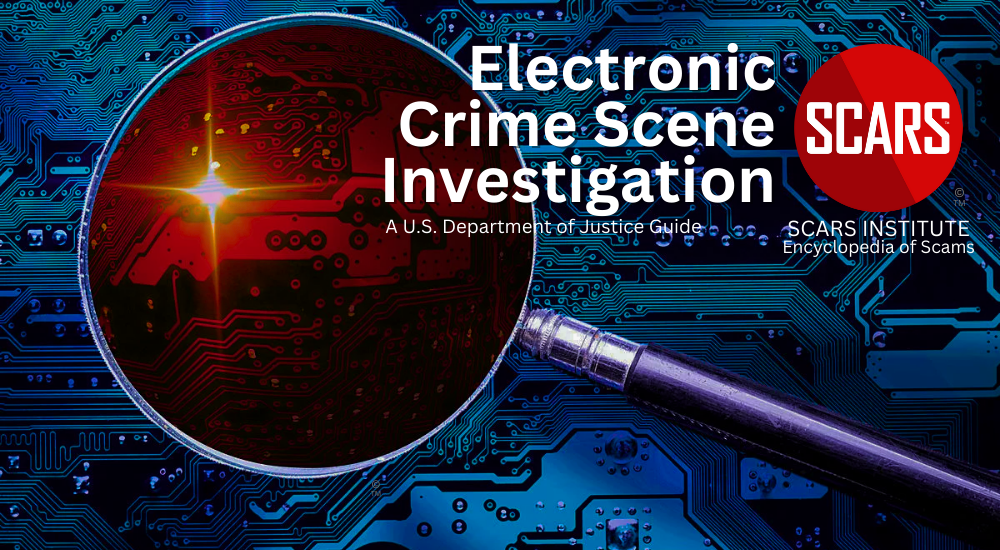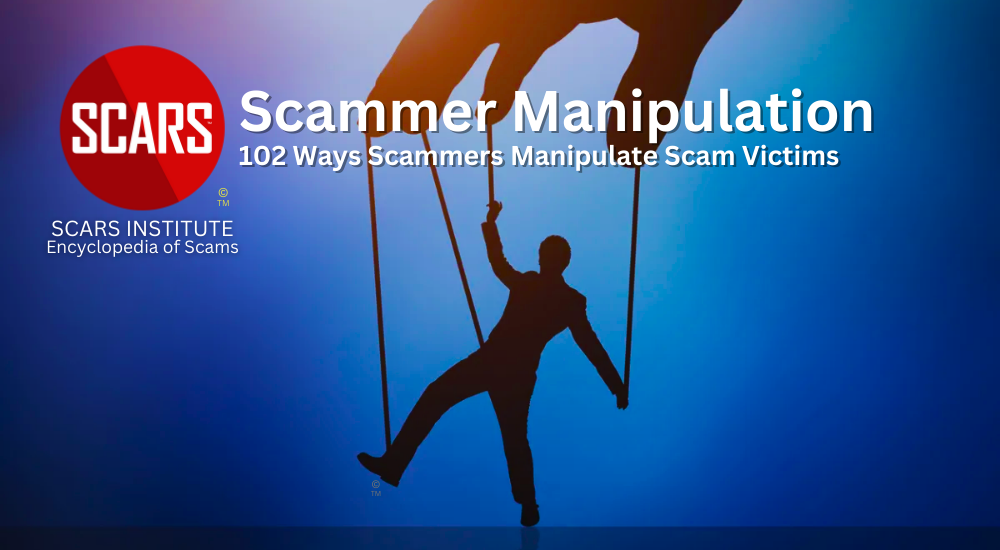
SCARS Institute’s Encyclopedia of Scams™ Published Continuously for 25 Years

Find Your Voice: Tell Nigeria What You Think!
Tell the Nigerian Government What You Think About Their Country, Law Enforcement, and Their Scammers!
Advocacy and Activism – A SCARS Institute Resource
Author:
• SCARS Institute Encyclopedia of Scams Editorial Team – Society of Citizens Against Relationship Scams Inc.
Originally Published: 2019 – Article Updated: 2024
Article Abstract
Writing a letter to the Nigerian Ambassador can be a powerful way for scam victims to express their frustrations and advocate for stronger law enforcement against Nigerian scammers.
By sharing their traumatic experiences, victims not only raise awareness but also engage in a form of catharsis, helping them release pent-up emotions and shift their focus from the scam to their own recovery. The process of writing the letter allows victims to regain a sense of control and channel their anger constructively, advocating for longer prison sentences, more convictions, and greater preventive measures.
This act of reaching out rebuilds a sense of empowerment, offering emotional relief and helping victims take the first steps toward healing.

Would You Like To Tell Nigeria’s Ambassador What You Think? Email Their Ambassador & Representatives!
Why Write to the Nigeria’s Ambassador or Representatives?
Writing a letter to Nigeria’s Ambassador or other representatives offers scam victims a constructive way to begin letting go of the crime and redirecting their energy toward personal recovery.
By articulating their experience in a formal, structured manner, victims take an empowering step toward acknowledging the crime and the impact it has had on their lives. This process can provide emotional validation and closure, allowing them to express feelings of anger, frustration, and betrayal in a productive way, rather than keeping these emotions bottled up.
Additionally, writing the letter helps victims shift their focus from the scam itself toward seeking justice and promoting greater awareness, turning their attention from the past to their future well-being.
As they ask for systemic change and stronger law enforcement efforts, they are engaging in an act of advocacy that can help to restore a sense of agency and control—elements that were stripped away by their scam. This cathartic process can be pivotal in the healing journey, as victims acknowledge their trauma while simultaneously taking steps toward their own recovery.
How to Write to the Ambassador of Nigeria for Scam Victims
Writing to Nigeria’s Ambassador is one way that scam victims can voice their concerns, share their traumatic experiences, and appeal for stronger law enforcement efforts against Nigerian scammers. Given the global scope of these scams, making an impactful, respectful, and clear case for change can help raise awareness and potentially influence policies or enforcement in Nigeria.
1. Addressing the Ambassador
It is important to address the Ambassador respectfully and professionally. Use the correct title and formal address format. For the Nigerian Ambassador, the salutation would be “Your Excellency,” followed by the ambassador’s full name.
Example: “Your Excellency Ambassador (Full Name), Embassy of the Federal Republic of Nigeria (Address) (City, Country)”
Of course, you do not have to be polite, you can feed your anger and hate but no one will read it and it will only harm your own recovery in doing it,
2. State the Purpose Clearly
In the first paragraph, be concise and direct about the purpose of your letter or email. Let the ambassador know that you are a victim of a scam that originated in Nigeria and that you are reaching out to request stronger law enforcement measures and greater penalties for the criminals responsible.
3. Describe Your Scam Experience
In the next part of your message, provide a summary of your experience. Be clear but succinct, explaining how you were targeted, the financial and emotional impact, and any details about the scam operation that you believe are important. Highlight how the scam affected you personally, including financial losses, emotional trauma, and loss of trust.
Example: “I was recently scammed by an individual or group based in Nigeria posing as a romantic partner/business associate (or whatever the nature of the scam). Over several months, I was manipulated into sending money under false pretenses, which has caused significant financial harm and emotional distress. Despite my best efforts to verify the legitimacy of the individual, I fell victim to a carefully orchestrated scheme.”
4. Appeal for Stronger Law Enforcement Efforts
After explaining your experience, transition into your plea for action. Emphasize the importance of prosecuting scammers, enforcing harsher prison sentences, and securing more convictions for those found guilty of scamming. This section should be firm but respectful, highlighting the need for increased action to stop Nigerian scammers from targeting global victims.
Example: “I urge your Excellency to advocate for stronger law enforcement measures against scammers operating within Nigeria. I implore the Nigerian government to increase investigations, secure more convictions, and impose harsher sentences on those convicted of fraud. The lack of accountability allows these crimes to persist, leaving countless victims devastated across the world.”
5. Mention the Broader Impact of Scams
Beyond your personal story, mention the broader global issue of Nigerian scams. Point out the damage it does not only to individuals but also to Nigeria’s international reputation. Emphasizing the long-term harm of these scams, both to victims and the country’s image, can strengthen your appeal.
6. Request a Response or Action Plan
Finally, politely request a response or information on any initiatives being implemented to curb scamming. If possible, offer to assist by sharing your story publicly or through other means to raise awareness about the issue.
7. Conclude Respectfully
Close your letter with appreciation for the ambassador’s time and consideration, and reiterate your hope for increased attention to the issue.
Sample Email Template:
Subject: Urgent Appeal for Stronger Action Against Nigerian Scammers
Your Excellency Ambassador [Full Name],
I hope this message finds you well. I am writing to you as a victim of an online scam perpetrated by individuals based in Nigeria.
Over the course of several months, I was groomed, manipulated, and controlled by a scammer posing as [describe scammer’s role – romantic partner, business associate, etc.], which resulted in significant financial losses and profoundly traumatic distress. Despite my best efforts to verify the legitimacy of the situation, I was expertly and professionally deceived, leaving me devastated and without recourse.
My experience is not an isolated case. Every year, millions of individuals around the world fall victim to similar scams that originate from Nigeria. These scams have a profound impact not only on the individuals who are targeted but also on Nigeria’s global reputation. What if, instead of me, it had been your mother or father, or family member who was the victim? These criminals are defrauding your own countries citizens too in vast numbers!
It is crucial that stronger measures be implemented to investigate, prosecute, and convict scammers who are responsible for these crimes.
I respectfully urge you to advocate for more substantial law enforcement efforts, longer prison sentences for convicted scammers, and more resources dedicated to pursuing these criminals, and they be disconnected from politics. Victims of these scams suffer long-lasting emotional and financial damage, and thousands take their own lives because of the shame. Scams are not just a financial crime, they are murder! More must be done to bring these perpetrators to justice.
Your police and law enforcement needs to be better trained as well. There is an organization called the SCARS Institute (www.AgainstScams.org contact@AgainstScams.org) that offers free law enforcement trailing. Please recommend to your agencies that they take advantage of that resource.
Thank you for your time and consideration of this matter. I hope to see Nigeria taking a far more active stance against these crimes and working toward greater accountability. Please let me know if there are any initiatives in place to address this issue or any ways I can assist in raising awareness about the impact of these scams.
Sincerely,
Your Full Name
Your City, State, Country
Your Contact Information (optional)
Your Address (optional)
Additional Tips:
- Be concise but comprehensive in your message. The ambassador likely receives numerous emails, so being clear and direct increases the chances of your message being read and considered.
- Maintain respect throughout the email. Anger is understandable, but being respectful and professional will make your message more effective.
- Provide contact information for follow-up. Make sure you include a way for the embassy to respond.
- You can write one email and CC each of the representatives as well to make it simpler.
By using this approach, scam victims can effectively communicate their concerns to the Nigerian ambassador and push for more significant action to combat scams.
Send By Mail
Embassy of the Federal Republic of Nigeria
3519 International Court, NW
Washington, DC 20008.
Find More
Directory of Nigerian Foreign Missions & Embassies: https://nigeriaunmission.org/directory-of-nigerian-foreign-missions/
Send By Email
| H.E. AMBASSADOR AISHA U. DEWA Minister/Head (Economic, Trade and Investment Section) |
adewa@nigeriaembassyusa.org |
| H.E. AMBASSADOR ANTHONY ALONWU Minister/Head (Political Section) |
aalonwu@nigeriaembassyusa.org |
| MR. RABIU LAWAL Charge D’Affaires A.I/Head of Information |
rabiulawal@nigeriaembassyusa.org |
| MRS. OLUWAFEMI GBADEBO Minister (Consular and Immigration) |
femigbadebo@nigeriaembassyusa.org |
| MR. CHUKUDI NWACHUKWU IGBOELI Minister/Head (Education and Liaising with Political Section) |
igboeli@nigeriaembassyusa.org |
| MRS. JOY AKINMOLADUN (Economic, Trade, and Investment) |
jakinmoladun@nigeriaembassyusa.org |
| MRS. IMAOBONG EFFIONG-ARCHIBONG (Tourism and Culture) |
archibong@nigeriaembassyusa.org |
| TITI KOLADE (Head of Chancery) |
tkolade@nigeriaembassyusa.org |
| MR. IBRAHIM ABUBAKAR (Protocol and Health) |
iabubakar@nigeriaembassyusa.org |
| MR. PAUL ALABI First Secretary (Educ., Econ., Trade & Investment) |
paulalabi@nigeriaembassyusa.org |
| MR. ABDULAZEEZ MUSTAPHA SULEIMAN (Consular and Immigration) |
abdulazeezmustapha@nigeriaembassyusa.org |
| MR. SUNNY IZIDOR Admin Attaché I (Office of the Ambassador) |
sizidor@nigeriaembassyusa.org |
| MRS. ESTHER EBI WISDOM Admin Attaché II (Administration Section) |
ewisdom@nigeriaembassyusa.org |
| MR. SAMUEL OGASHUWA Admin Attaché III (Administration Section) |
sogashuwa@nigeriaembassyusa.org |
| MR. EBIKELA JASPER Communication Officer |
jasper@nigeriaembassyusa.org |
| MRS. VICTORIA AKINMOLADUN Admin Attaché V (Administration Section) |
victoria@nigeriaembassyusa.org |
| DR. VALERIE CHINEDU OBIOHA Finance Attaché |
vobioha@nigeriaembassyusa.org |
| Permanent Mission of Nigeria to the United Nations | permny@nigeriaunmission.org |
-/ 30 /-
What do you think about this?
Please share your thoughts in a comment below!
Table of Contents
- Tell the Nigerian Government What You Think About Their Country, Law Enforcement, and Their Scammers!
- Article Abstract
- Would You Like To Tell Nigeria’s Ambassador What You Think? Email Their Ambassador & Representatives!
- Why Write to the Nigeria’s Ambassador or Representatives?
- How to Write to the Ambassador of Nigeria for Scam Victims
- Sample Email Template:
- Additional Tips:
- Send By Mail
- Find More
- Send By Email
LEAVE A COMMENT?
Thank you for your comment. You may receive an email to follow up. We never share your data with marketers.
Recent Comments
On Other Articles
- on Love Bombing And How Romance Scam Victims Are Forced To Feel: “I was love bombed to the point that I would do just about anything for the scammer(s). I was told…” Feb 11, 14:24
- on Dani Daniels (Kira Lee Orsag): Another Scammer’s Favorite: “You provide a valuable service! I wish more people knew about it!” Feb 10, 15:05
- on Danielle Delaunay/Danielle Genevieve – Stolen Identity/Stolen Photos – Impersonation Victim UPDATED 2024: “We highly recommend that you simply turn away form the scam and scammers, and focus on the development of a…” Feb 4, 19:47
- on The Art Of Deception: The Fundamental Principals Of Successful Deceptions – 2024: “I experienced many of the deceptive tactics that romance scammers use. I was told various stories of hardship and why…” Feb 4, 15:27
- on Danielle Delaunay/Danielle Genevieve – Stolen Identity/Stolen Photos – Impersonation Victim UPDATED 2024: “Yes, I’m in that exact situation also. “Danielle” has seriously scammed me for 3 years now. “She” (he) doesn’t know…” Feb 4, 14:58
- on An Essay on Justice and Money Recovery – 2026: “you are so right I accidentally clicked on online justice I signed an agreement for 12k upfront but cd only…” Feb 3, 08:16
- on The SCARS Institute Top 50 Celebrity Impersonation Scams – 2025: “Quora has had visits from scammers pretending to be Keanu Reeves and Paul McCartney in 2025 and 2026.” Jan 27, 17:45
- on Scam Victims Should Limit Their Exposure To Scam News & Scammer Photos: “I used to look at scammers photos all the time; however, I don’t feel the need to do it anymore.…” Jan 26, 23:19
- on After A Scam, No One Can Tell You How You Will React: “This article was very informative, my scams happened 5 years ago; however, l do remember several of those emotions and/or…” Jan 23, 17:17
- on Situational Awareness and How Trauma Makes Scam Victims Less Safe – 2024: “I need to be more observant and I am practicing situational awareness. I’m saving this article to remind me of…” Jan 21, 22:55
ARTICLE META
Important Information for New Scam Victims
- Please visit www.ScamVictimsSupport.org – a SCARS Website for New Scam Victims & Sextortion Victims
- Enroll in FREE SCARS Scam Survivor’s School now at www.SCARSeducation.org
- Please visit www.ScamPsychology.org – to more fully understand the psychological concepts involved in scams and scam victim recovery
If you are looking for local trauma counselors please visit counseling.AgainstScams.org or join SCARS for our counseling/therapy benefit: membership.AgainstScams.org
If you need to speak with someone now, you can dial 988 or find phone numbers for crisis hotlines all around the world here: www.opencounseling.com/suicide-hotlines
A Note About Labeling!
We often use the term ‘scam victim’ in our articles, but this is a convenience to help those searching for information in search engines like Google. It is just a convenience and has no deeper meaning. If you have come through such an experience, YOU are a Survivor! It was not your fault. You are not alone! Axios!
A Question of Trust
At the SCARS Institute, we invite you to do your own research on the topics we speak about and publish, Our team investigates the subject being discussed, especially when it comes to understanding the scam victims-survivors experience. You can do Google searches but in many cases, you will have to wade through scientific papers and studies. However, remember that biases and perspectives matter and influence the outcome. Regardless, we encourage you to explore these topics as thoroughly as you can for your own awareness.
Statement About Victim Blaming
SCARS Institute articles examine different aspects of the scam victim experience, as well as those who may have been secondary victims. This work focuses on understanding victimization through the science of victimology, including common psychological and behavioral responses. The purpose is to help victims and survivors understand why these crimes occurred, reduce shame and self-blame, strengthen recovery programs and victim opportunities, and lower the risk of future victimization.
At times, these discussions may sound uncomfortable, overwhelming, or may be mistaken for blame. They are not. Scam victims are never blamed. Our goal is to explain the mechanisms of deception and the human responses that scammers exploit, and the processes that occur after the scam ends, so victims can better understand what happened to them and why it felt convincing at the time, and what the path looks like going forward.
Articles that address the psychology, neurology, physiology, and other characteristics of scams and the victim experience recognize that all people share cognitive and emotional traits that can be manipulated under the right conditions. These characteristics are not flaws. They are normal human functions that criminals deliberately exploit. Victims typically have little awareness of these mechanisms while a scam is unfolding and a very limited ability to control them. Awareness often comes only after the harm has occurred.
By explaining these processes, these articles help victims make sense of their experiences, understand common post-scam reactions, and identify ways to protect themselves moving forward. This knowledge supports recovery by replacing confusion and self-blame with clarity, context, and self-compassion.
Additional educational material on these topics is available at ScamPsychology.org – ScamsNOW.com and other SCARS Institute websites.
Psychology Disclaimer:
All articles about psychology and the human brain on this website are for information & education only
The information provided in this article is intended for educational and self-help purposes only and should not be construed as a substitute for professional therapy or counseling.
While any self-help techniques outlined herein may be beneficial for scam victims seeking to recover from their experience and move towards recovery, it is important to consult with a qualified mental health professional before initiating any course of action. Each individual’s experience and needs are unique, and what works for one person may not be suitable for another.
Additionally, any approach may not be appropriate for individuals with certain pre-existing mental health conditions or trauma histories. It is advisable to seek guidance from a licensed therapist or counselor who can provide personalized support, guidance, and treatment tailored to your specific needs.
If you are experiencing significant distress or emotional difficulties related to a scam or other traumatic event, please consult your doctor or mental health provider for appropriate care and support.
Also read our SCARS Institute Statement about Professional Care for Scam Victims – click here to go to our ScamsNOW.com website.
















I am writing an email to each one of the representative to advocate for victims all over. It’s going to take me sometime, but I’ll be back to give a status update when I’m finished… no! no! not Arnold the Terminator… just me, a survivor of romance scam.AXIOS!
I sent the mail. Thank you!
I want to thank you for this opportunity